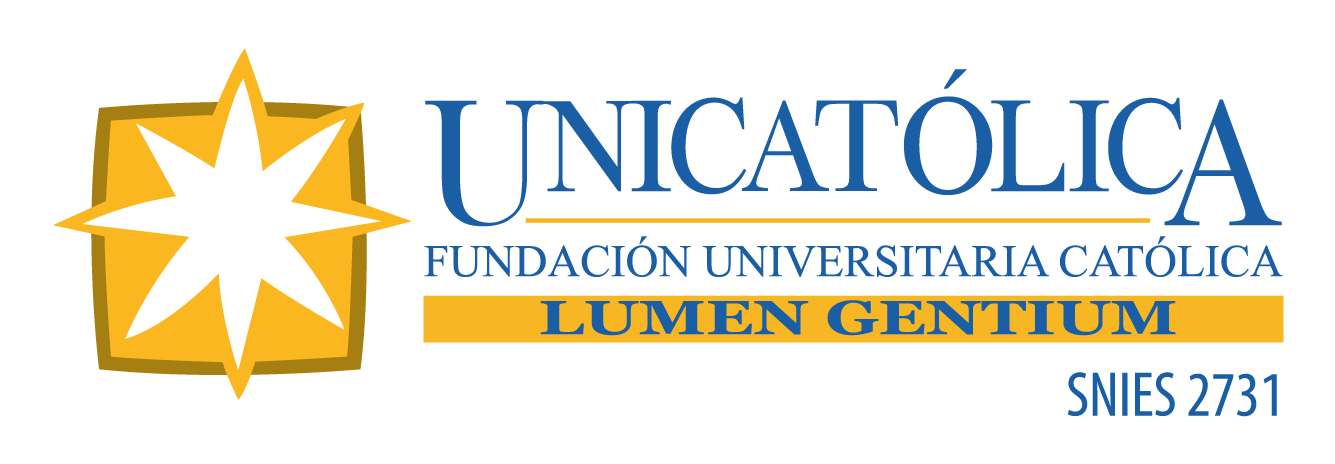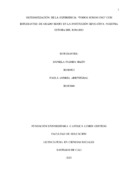Sistematización de la experiencia “Todos somos uno” con estudiantes de grado sexto en la Institución Educativa Nuestra Señora del Rosario
Resumen
En el colegio Nuestra Señora del Rosario específicamente con los estudiantes de grado sexto se pudo evidenciar que había dificultades en el desarrollo de las clases de ciencias sociales, sobre todo, al referirse a conductas disruptivas, dado que este tipo de comportamientos interfieren en el buen desarrollo de las clases y por ende la motivación de los estudiantes.
Cabe resaltar que las conductas disruptivas se presentan frecuentemente en las aulas de clase y pueden llegar a generar clima escolar desagradable, actitudes desobedientes, discusiones, etc. que a su vez interfieren en el proceso de enseñanza- aprendizaje de los estudiantes dentro del aula.
En el desarrollo del proyecto “conductas disruptivas dentro del aula de clase” se encontró diferentes problemáticas asociadas a la Pandemia de Covid-19, puesto que se tuvieron que aplazar las prácticas educativas y en un momento dado se realizaron en otro escenario distinto al descrito en un principio; sin embargo, se aplicaron distintas actividades a los estudiantes que permitieron reflexionar ante el problema, entre las cuales de destacan la prueba diagnóstica para reconocer los saberes de los estudiantes y saber de dónde partir con el grupo, pues esta actividad permite identificar las fortalezas y las habilidades de los estudiantes de manera individual y grupal.
Por otra parte, la crisis sanitaria permitió replantear la importancia de la educación y, sobre todo, cómo enseñar las ciencias sociales a través de distintas formas (en este caso, la virtualidad). Sin embargo, para contrarrestar los efectos en el sistema educativo se realizó actividades integradoras desde aulas virtuales como es el caso de herramientas como kahoot, fichas interactivas. Por otra parte, tratando de llegar a los estudiantes se fomenta la interacción con ellos de tal forma que puedan utilizar espacios de las clases para socializar sobre la manera en cómo se estaba sobrellevando la situación, realizando preguntas sobre su estado anímico y fomentando el cuidado desde casa.
Abstract
At Nuestra Señora del Rosario school specifically with sixth grade students
It was evident that there were difficulties in the development of social science classes,
above all, when referring to disruptive behaviors, given that this type of behavThey interfere with the proper development of classes and therefore the motivation of students. It should be noted that disruptive behaviors frequently occur in classrooms. and can lead to unpleasant school climate, disobedient attitudes, arguments, etc which in turn interfere with the teaching-learning process of students within from the classroom.
In the development of the project “disruptive behaviors within the classroom” it was found different problems associated with the Covid-19 Pandemic, since they had to postpone educational practices and at one point they were carried out in another different setting as described at the beginning; However, different activities were applied to the students that allowed us to reflect on the problem, among which the test stands out diagnostic to recognize the students' knowledge and know where to start from with the group, since this activity allows us to identify the strengths and abilities of the students of
individually and in groups.
On the other hand, the health crisis allowed us to rethink the importance of education and, above all, everything, how to teach social sciences through different ways (in this case, virtuality). However, to counteract the effects on the educational system, integrative activities from virtual classrooms such as tools such as kahoot, interactive sheets. On the other hand, trying to reach students encourages interaction with them in such a way that they can use classroom spaces to socialize about the way in which they were coping with the situation, asking questions about their mood and promoting care from home.
Palabras clave
Experiencias -- Enseñanza-aprendizajeExperiencia pedagógica -- Espacios de aprendizaje en los estudiantes

